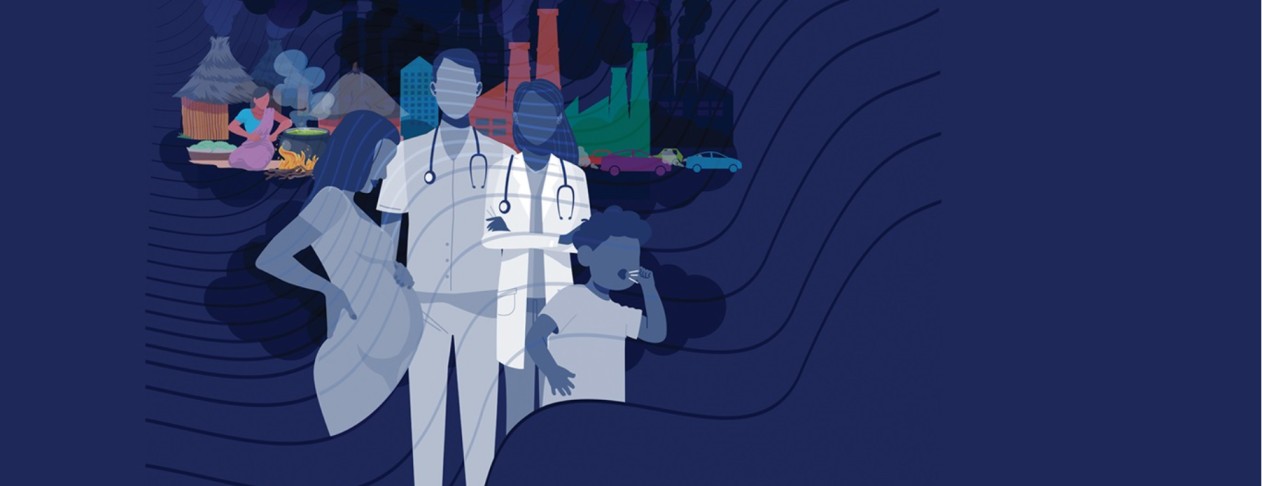WHO launches groundbreaking air pollution training for health workers
 Image credit: WHO
With information of who.org
Image credit: WHO
With information of who.org
In a landmark collaboration with over 30 international experts, the World Health Organization (WHO) has developed the first Air Pollution and Health Training toolkit (APHT), specifically tailored for health workers to be unveiled at the end of 2023. The toolkit includes downloadable training modules accompanied by a manual using a train-the-trainers approach to inform and empower health care professionals. In anticipation of the toolkit’s launch, an instrumental step is being taken to equip health care professionals for the challenges ahead by launching the user-friendly OpenWHO online training program, to coincide with this year's International Day for Clean Air for blue skies. This strategic move reflects a commitment to addressing air pollution concerns and fostering healthier conditions for all.
“Health workers are on the front lines of patient care,” said Dr Maria Neira, Director, Department of Environment, Climate Change and Health, WHO. “E
mpowering health care providers to identify instances where air pollution impacts well-being and communities is paramount to public and global health. This training toolkit provides resources to communicate risks and to champion for clean air and healthier populations.”
Air pollution and the role of health workers
Air pollution is a significant global health challenge, with far-reaching consequences on both individual well-being and public health. WHO estimates that, globally, air pollution is responsible for about 7 million premature deaths per year from ischemic heart disease, stroke, chronic obstructive pulmonary disease and lung cancer, and acute respiratory infections such as pneumonia, mainly affecting children in low- and middle-income countries.
Air pollution also threatens the global economy as it imposes enormous health costs, representing 6.1% of the global gross domestic product (more than US$ 8 trillion in 2019).
The international community has recognized that health workers have a prominent role to play in the battle for clean air. Despite this recognition, a critical gap persists – many health curricula inadequately address the profound health consequences of air pollution. By enhancing the capacity of health professionals to tackle this issue, WHO envisions a healthier and cleaner future for communities worldwide, with particular attention to the most vulnerable populations.
Air Pollution and Health Training toolkit (APHT)
The APHT is designed for health workers, in both the clinical and public health fields, to understand the health risks of air pollution and identify risk reduction measures. It equips health workers to use the health argument to advocate for clean air interventions and promote the collaboration between relevant civil society actors and governmental institutions for policy implementation. Using a train-the-trainer approach, the APHT also helps facilitate the organization of in-person workshops, online courses and other learning opportunities.
The toll of illnesses stemming from air pollution exposure places a direct strain on health systems. The health sector therefore has a significant interest in improving air quality. Tools provided by WHO, such as this training program, can empower local health workers in their own communities to advocate for policy reforms while counselling patients and individuals on how to reduce their exposure.
The first part of the toolkit is an OpenWHO online course, which aims to provide health workers with knowledge to understand the risks of air pollution and to communicate to individuals and communities how to reduce their exposure. This course is made up of 4 modules: outdoor (ambient) air pollution, household air pollution, the main health effects of air pollution exposure, and what health workers can do.
The primary target audience of the free accessible online course, is health professionals worldwide. This includes medical practitioners, doctors, nurses, midwives, community health workers, medical students and future health care professionals, public health professionals, officials within health ministries and policymakers working at both national and subnational levels.
Go to the OpenWHO Course